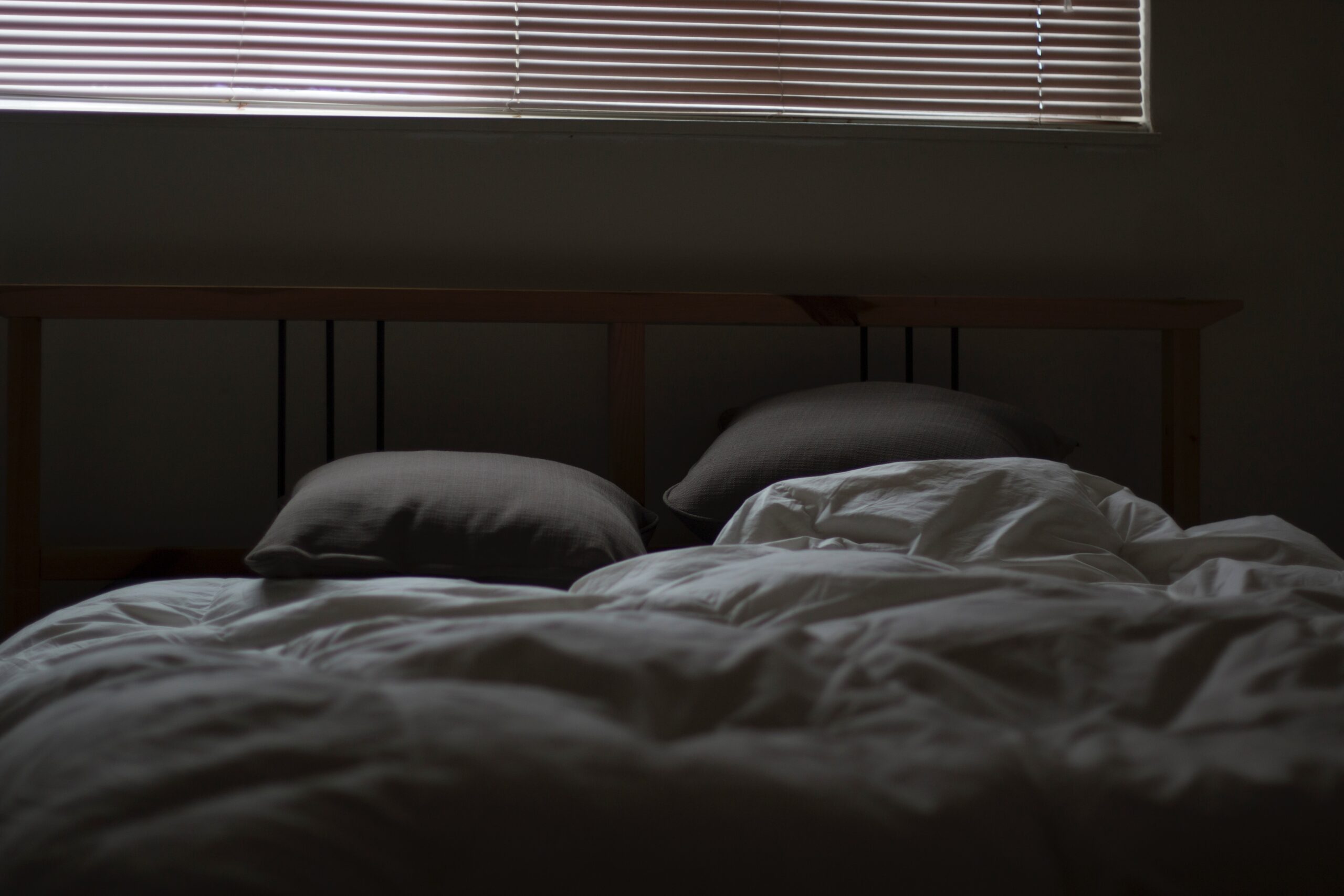There’s so much to read nowadays on the topic of sleep. It’s something we cover on one of our most popular workshops for organisations called How To Avoid Burnout because one in every two of us now suffer with sleep issues. One size certainly does not fit all and if there are serious underlying issues, then your GP or health practitioner should be your first port of call, but here we’ve gathered what we believe is the best advice to help you get back into the rhythm of life, which should always include getting a good night’s rest.
Keep your bedroom cool
Most of us keep our bedrooms too warm. We think we need to be toasty to sleep and that might well be true under the covers, but the bedroom itself should feel cool. Why? Your body’s core temperature needs to fall to signal that it’s time for sleep. Consider when we lived outside on the plains or in forests. When night time came, the temperature dropped and everyone would go off to sleep. In becoming a civilised society, we’ve forgotten much of our body’s connection with nature to the detriment of our sleep patterns. 18C is about right for most people, but gauge what works for you. Even better, have a hot shower or bath before bed. When you come out, your body temperature will drop, signalling to your body it’s time to sleep.
Regular rest times
Despite many of us not liking to be creatures of habit, there’s no denying that we are, biologically! So try, if you can, to make your wake up times and bed times the same time each day for consistency. Routine acts as another signal to the body that it’s time for bed and means it doesn’t have to adjust to an ever-changing programme of different times. It also means that having long lie ins at the weekend make it twice as hard again to get going at the beginning of the week. It’s a little like jet-lag on the body, having to claw back 3 hours or so that you slept in.
Make it dark
This goes back to biology again and being in tune with nature and the natural rhythms of life. Darkness releases melatonin which is the hormone associated with healthy sleep cycles. We’re also desperately deprived of darkness in our forever-on and out-of-touch-with-nature culture. We’re either in front of computers, phones or TV’s which interrupts our natural cycles and confuses our natural body clocks. So, like you’ve no doubt heard a million times, switch off for the evening (at least an hour before, certainly for laptops and phones) and let your body slow down and prepare for bedtime naturally. Dim the lights a little before you plan to sleep and phase your mind and body into the notion of sleep gradually, in the lead up to bed time.
Sleep Cycles
Whilst this won’t actually help you sleep as such, this advice will help you when it comes to waking up. We sleep in 45 minute cycles, and when we set alarms for ourselves, they often wake us up right in the middle of a cycle. This is what happens when you feel groggy and it seems to take forever to ‘get going’. The way to avoid this is to count back from when you need to wake up, in 45 minute cycles, so you can then work out when you need to go to sleep. This means, assuming you’ve managed to get a good night’s sleep, that you’ll wake up refreshed rather than confused and out of sorts.
We’re not going to patronise you by talking about no caffeine or other stimulants after 2pm, but what else can we tell you? Well, if you still can’t sleep, despite all the above advice, what should you do next? For starters, don’t even think about doing some work on your bed. Your brain learns quickly to associate working with bed and begins to think that being in or on your bed is a time for work, not sleep. Instead, get up and try doing something relaxing like reading, but go to a different place in the house and only return to bed when you feel sleepy. You wouldn’t wait at the dinner table to feel hungry, so don’t expect to feel sleepy lying in bed! Also, try not to look at your alarm clock/phone clock. It can be hugely stressful looking at the time and willing yourself to feel sleepy.
So, good luck! And if you’d like to read more about sleep go here, or to book a talk for your team which includes similar great nuggets of advice, why not try our How To Avoid Burnout talk.

